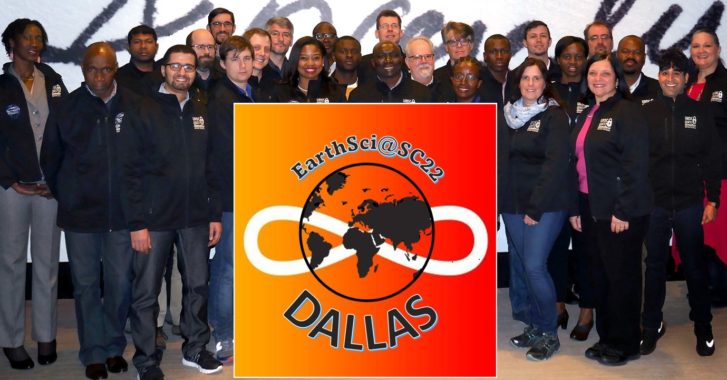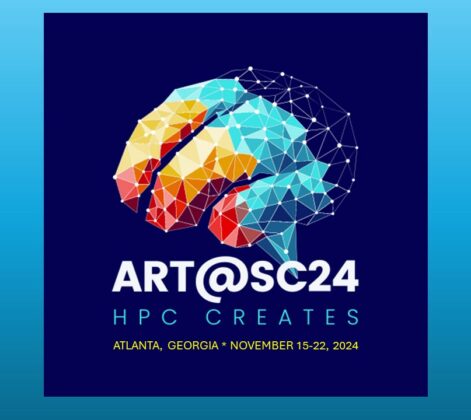Agenda:
Friday, November 11, 4-7 p.m. Dallas Convention Center Room A302/303
Welcome – Elizabeth Leake (Boise State University).
Distribute affinity gear and introductions.
Pete Beckman (Argonne) – Description of program presented on Saturday.
Isango – Elizabeth Leake. Composable, mobile and affordable compute platform.
Saturday, November 12, 10 a.m. to 5:30 p.m. same room:
10 a.m. to 12 noon: Shawana Johnson (Global Marketing Insights, Inc.) – Satellite engagement – presentation followed by flash talks, and a panel with “Postcard” submitters – Dr. Johnson and others will advise on the topics of remote, edge-related compute and data challenges. Postcards From the Edge 5-minute lightning talks (delegates will share edge challenges).
10-11 p.m. Keynote by Dr. Mary-Jane Bopape (South African EON)
11-12 p.m. Shawana Johnson – Satellite integration specialist.
Noon to 1 p.m.: Lunch (on your own; bring it back to the room to eat)
1-2:30 p.m.: Postcard flash talks and panel.
2:30-2:45 Break
2:45-3:30 p.m. Pete Beckman (Argonne) – SAGE
3:30-4 p.m.: Ilkay Altintas (SDSC) – WIFIRE
4-5:30 p.m.: Eric Shook (UMN) – GIS Toolkit
5:30 Group Photo
6:30-10 Dinner and performance at the Medieval Times venue (invitation only; advance reservation required).
Please wear masks during the pre-conference workshop. We have a large room in the Convention Center and can socially distance. There is no mask requirement in the general conference, but we can all set a good example.
History/Context:
STEM-Trek Nonprofit has facilitated events prior to the annual Supercomputing Conference since 2015. In collaboration with the Texas Advanced Computing Center and National Science Foundation’s (NSF) Ranger project), our first workshop was for high-performance computing (HPC) systems administrators at TACC prior to SC15 in Austin, Texas. The second: “HPC On Common Ground@SC16,” focused on food security science in collaboration with principal investigators from the University of Oklahoma and Oklahoma State. URISC@SC17 (Understanding Risk in Shared Cyberecosystems) was led by NSF Trusted-CI. In 2018-20, we held smaller events that took on a more multidisciplinary scope – attendees either support or are actively engaged with basic research – many with industrial partners – in a wide range of domains.
We are returning to the pre-conference format for EarthSci@SC22 in Dallas Texas, Nov. 13-18, with Boise State University. The opportunity to convene before the conference facilitates meaningful relationships before delegates enter the main event which, due to its size (>10k), can be overwhelming for newcomers. Travel awards, depending upon eligibility, may support both workshop and full conference participation. Some familiar faces first appearing at our 2015 workshop will return, but every effort was made to broaden participation. After being place bound for more than two years due to COVID-19, it’s time to convene for science diplomacy, synergy and acceleration!
Who was invited? Applications were accepted from scientists and technologists who live and work in U.S. EPSCoR (NSF Established Program to Stimulate Competitive Research) states and territories and pan-Africa – Southern African Development Community; SADC 16 member states and African High-Performance Computing (HPC) Ecosystems Project led by the South African Centre for HPC. Resource-constrained regions experience common challenges with water and nutrition security, and access to healthcare, education, and commerce. Since they’re also usually under-served in terms of network infrastructure, there is often a research emphasis on and innovation with computing at the edge – IoT/precision and decision science informed by sensors that may utilize satellite technology, for example. Many are actively or tangentially engaged with production agriculture, alternate energy, wildlife conservation or wildfire mitigation – science that requires champions who are passionate about solving the most confounding climate change-related conundrums that affect the quality of life on earth.
Support for EarthSci@SC22: The SC22 General Chair graciously donated 12 tech program registration waivers. South African Airlink Airlines pledged pan-African flights from countries they serve (round-trip to JNB). A STEM-Trek donation from Google will support international travel, add-on workshop and tutorial fees, virtual registrations for a limited number, and an affinity garment (blue jacket).
Through a National Science Foundation grant to Boise State University, 15 US participant costs (lodging, registration, and/or flights depending on status – EPSCoR favored) will attend. Twenty-one applied from pan-Africa and we can support ten (with help from the Southern African Development Community and the South African Centre for HPC). Represented are: South Africa, Botswana, Lesotho, Malawi, and Mozambique.
Keynote and trainers:
Welcome Keynote: Mary Jane Bopape, Managing Director of the South African Environmental Observational Network. Preceding this appointment, she was the Research Senior Manager at the South African (SA) Weather Service and worked at the SA Council for Scientific and Industrial Research. She completed a post-doctoral research fellowship at the University of Reading in the UK, and holds a PhD in Meteorology from the University of Pretoria. As an atmospheric modeling specialist, Dr. Bopape works with a range of timescales including short-range forecasting, seasonal prediction, and climate change projections. She has led several regional projects, including one among six Southern African Development Community (SADC) member states. She is one of 21, 2019 Climate Research for Development (CR4D) fellowship grantees and a 2021 AIMS Women Fellow in Climate Change Science. She is a co-recipient of the 2008 World Meteorological Organization (WMO) award for young researchers and was listed among the most influential Africans of 2021 by the New African magazine.
The WIFIRE Commons – Ilkay Altintas (UCSD/SDSC): WIFIRE Commons is a data-driven, artificial intelligence (AI) enabled and model-based scientific approach that ultimately aims to limit and even prevent the devastating effects of wildfires by using advanced technologies to support fire mitigation, preparedness, response, and recovery.
Cyberinfrastructure for AI at the Edge – SAGE: Peter Beckman (UChicago) –Distributed, intelligent sensor networks that can collect and analyze data are essential to scientists seeking to understand the impacts of global urbanization, natural disasters such as flooding and wildfires, and climate change on natural ecosystems and city infrastructure.
“Hour of CI” and GISandbox with Eric Shook (U-Minnesota) – The Hour of CI project is a nationwide campaign introducing hundreds of diverse undergraduate and graduate students to cyberinfrastructure. Modeled on the “Hour of Code,” the Hour of CI project is building a sustainable learning community and scalable training environment to train learners at institutions ranging from R1 universities to two-year teaching colleges. (hourofci.org).
Shawana Johnson (Global GIS Expert) – Dr. Shawana P. Johnson, maintains a USG security clearance, lives in Ohio, and works in Washington D.C. as well as globally; is a GISP (Certified Geographic Business Information System Professional) and a globally recognized geospatial intelligence expert supporting the U.S. government and the global security and intelligence industries with market information focused on global-commercial geospatial imagery assets from spaceborne to terrestrial-based as well as the supporting cloud and high-performance compute technology platforms and capabilities needed in order to utilize these geospatial assets and tools. Expertise: Agriculture, Water Resources, Maritime Security, and Land Asset and Resource Planning.
Planning committee:
Elizabeth Leake (Principal Investigator; Director, Research Computing, Boise State University; Director and Founder, STEM-Trek Nonprofit); Jason Watt (Senior Cyberinfrastructure Engineer, Boise State University);
James Nelson (HPC Systems Administrator III and Geosciences Research Facilitator, Boise State University); and Bryan Johnston, (Senior HPC Systems Engineer, CHPC South Africa).




